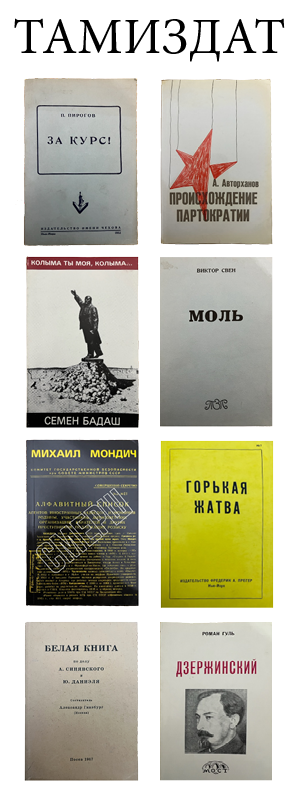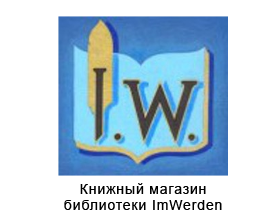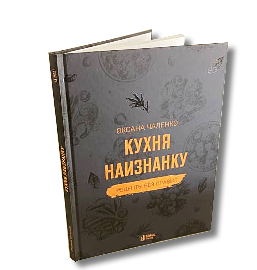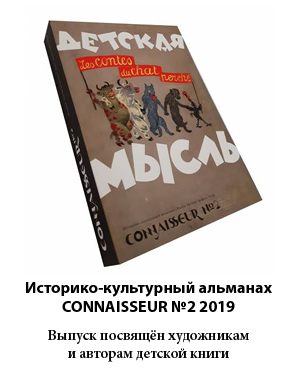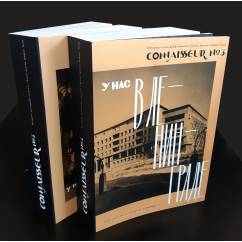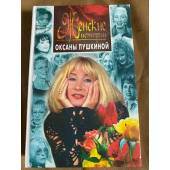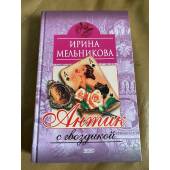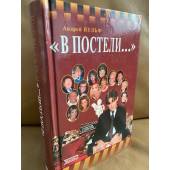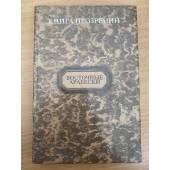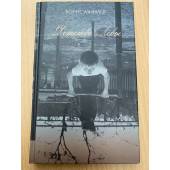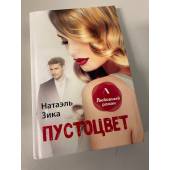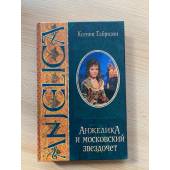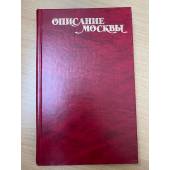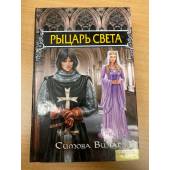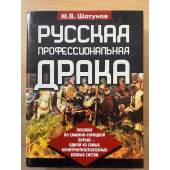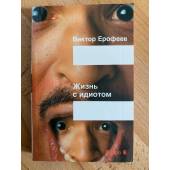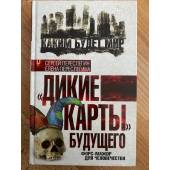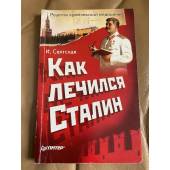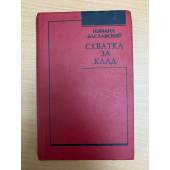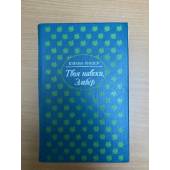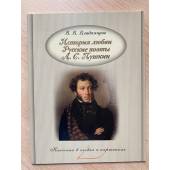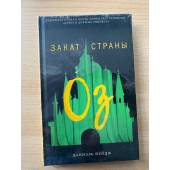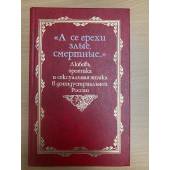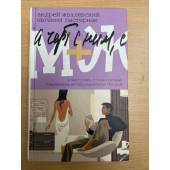
Нет товаров
Товар добавлен в корзину
Товаров в корзине: 0 Сейчас в корзине 1 товар.

Каталог товаров
- Альбомы (2086)
- Антикварные (до 1850 г.) старинные книги (до 1941 г.) (592)
- Аудиокниги, компакт диски (CD) (121)
- Бизнес. Экономика (1613)
- Военное дело. Оружие. Спецслужбы (3908)
- Гравюры (7)
- Грампластинки, винил (131)
-
Детская литература
(10213)
- Детское творчество и досуг (906)
- Книги для родителей (357)
- Книжки-игрушки (40)
- Обучающая и развивающая литература для детей (1677)
- Познавательная литература для детей (769)
- Советские детские книги (907)
-
Художественная литература для детей
(4270)
- Детективы и приключения для детей (192)
- Зарубежная проза для детей (314)
- Книги для малышей (113)
- Книги по мультфильмам и кинофильмам. Комиксы (88)
- Мифы. Легенды. Историческая проза для детей (74)
- Повести и рассказы о животных (144)
- Поэзия для детей (146)
- Русская проза для детей (417)
- Сказки (506)
- Фантастика, фэнтези и ужастики для детей (121)
-
Дом. Быт. Досуг.
(7626)
- Дом. Быт (3142)
-
Спорт
(940)
- Аэробика. Фитнесс. Йога. Танцы (31)
- Боевые и спортивные единоборства (82)
- Водные виды спорта (28)
- Гимнастика. Легкая и тяжелая атлетика (8)
- Другие виды спорта (51)
- Зимние виды спорта (18)
- Настольные игры (158)
- Олимпийские игры (13)
- Самооборона. Выживание (20)
- Спортивные игры (23)
- Туризм (85)
- Физическая культура и спорт (73)
- Экстремальные виды спорта (12)
- Справочная литература (2150)
- Хобби. Досуг (1660)
- Эротические книги, книги о сексе, камасутра (193)
-
Журналы и газеты
(2557)
- Автомобили, охота, рыбалка (14)
- Архитектура, интерьер (9)
- Астрология, эзотерика (39)
- Детские журналы (12)
- Дом, сад, огород (34)
- Дом, семья, досуг (75)
- Журналы для женщин (108)
- Журналы для мужчин (212)
- Журналы для родителей (2)
- Знаменитости, ЖЗЛ (34)
- Издания с ТВ программой (133)
- История (111)
- Календари 2020 (1)
- Календари 2021 (3)
- Компьютер, техника (4)
- Кроссворды, сканворды (2)
- Кулинария и рецепты (25)
- Литература, театр, музыка (235)
- Медицина, здоровье (153)
- Мода, стиль, красота (17)
- Наука, техника, фантастика (168)
- Общество, политика (638)
- Подшивки (233)
- Путешествия, страны (14)
- Развлекательные журналы (7)
- Религия (10)
- Русская пресса зарубежья (480)
- Специальные выпуски (57)
- Хобби, интересы (104)
- Шитьё, вязание, рукоделие (8)
- ЗОЖ. Здоровое питание. Фитнес (1795)
- Искусство и культура (5329)
- История (9740)
- Календари (41)
- Карты, атласы (642)
-
Книги для школы
(4594)
- Атласы, Контурные карты (9)
- Библиотека школьника (282)
- Выпускникам и абитуриентам (93)
- Готовые домашние задания, шпаргалки (15)
- Дополнительные учебные пособия (298)
- ЕГЭ. ГИА (21)
- Книги для учителя (934)
- Поиск пособий по предметам (240)
- Поиск учебников по классам (104)
- Сочинения, изложения, диктанты (23)
-
Книги на иностранных языках
(8337)
- Книги на адыгейском языке (3)
- Книги на азербайджанском языке (47)
- Книги на алтайском языке (4)
- Книги на английском языке (6501)
- Книги на балкарском языке (8)
- Книги на башкирском языке (73)
- Книги на белорусском языке (46)
- Книги на болгарском языке (2)
- Книги на бурятском языке (5)
- Книги на венгерском языке (6)
- Книги на голландском языке (2)
- Книги на греческом языке (2)
- Книги на грузинском языке (37)
- Книги на испанском языке (17)
- Книги на итальянском языке (12)
- Книги на казахском языке (8)
- Книги на калмыцком языке (8)
- Книги на карачаевском языке (1)
- Книги на карельском языке (3)
- Книги на киргизском языке (6)
- Книги на латышском языке (46)
- Книги на литовском языке (8)
- Книги на марийском языке (17)
- Книги на мокшанском языке (1)
- Книги на мордовском языке (3)
- Книги на ногайском языке (1)
- Книги на норвежском языке (4)
- Книги на польском языке (14)
- Книги на португальском языке (2)
- Книги на словацком языке (2)
- Книги на таджикском языке (34)
- Книги на татарском языке (101)
- Книги на удмуртском языке (10)
- Книги на узбекском языке (9)
- Книги на украинском языке (980)
- Книги на финском языке (7)
- Книги на французском языке (43)
- Книги на чувашском языке (29)
- Книги на шведском языке (3)
- Книги на эстонском языке (10)
- Книги на языках народов Кавказа (7)
- Книги на языке Коми (5)
- Книги на якутском (саха) языке (27)
- Книги на японском языке (7)
- Книги на ярзянском языке (2)
- Книги о Йоге (161)
- Книги с автографом (249)
- Коллекционные наборы (54)
- Комиксы (53)
- Комплекты (журналы) (60)
- Комплекты (разные книги) (139)
- Кулинария (1331)
- Миниатюрные книги (149)
- Музыка. Нотные издания (1018)
- Настольные игры (19)
- Немецкий язык и Германия (34730)
- Открытки (191)
- Плакаты (37)
- Почтовые марки (92)
-
Профессиональная, учебная литература
(24468)
- Гуманитарные науки (8795)
- Естественные науки. Математика (2215)
-
Компьютерная литература
(471)
- MS Office. Офисные программы Microsoft (11)
- Администрирование. Защита информации (5)
- Аппаратное обеспечение (4)
- Базы данных (8)
- Графика, дизайн, мультимедиа, игры (27)
- Информатика (27)
- Компьютер для … (16)
- Компьютерные сети. Интернет (23)
- Общие вопросы (41)
- Операционные системы (12)
- Работа на ПК для начинающих (18)
- Системы проектирования (CAD/CAM) (1)
- Языки и среды программирования (37)
-
Медицина и здоровье
(2413)
- Другие отрасли медицины (90)
- Клиническая медицина. Внутренние болезни (22)
- Косметология (22)
- Наркология (12)
- Нервная система (29)
- Общая патология. Общая терапия (25)
- Основы медицины. Система здравоохранения (27)
- Педиатрия (51)
- Популярная и нетрадиционная медицина (1133)
- Прикладная медицина (44)
- Психиатрия. Невропатология. Сексопатология (71)
- Фармакология. Токсикология (21)
- Хирургия (18)
- Монографии (1110)
- Общественные науки (5518)
-
Прикладные науки. Техника
(2511)
- Архитектура (360)
- Безопасность жизнедеятельности (46)
- Горная промышленность (83)
- Другие отрасли промышленнности (101)
- Легкая промышленность (39)
- Лесная и лесохимическая промышленность (13)
- Машиностроение. Приборостроение (184)
- Металлургия (28)
- Нанотехнологии (5)
- Нефтегазовая промышленность (53)
- Пищевая промышленность (19)
- Полиграфия (8)
- Проектирование (136)
- Радиотехника. Электроника. Связь (263)
- Сельское хозяйство. Ветеринария (41)
- Строительство (445)
- Технические науки (330)
- Технология производства (100)
- Транспорт (183)
- Химическая промышленность (104)
- Энергетика (68)
- Ювелирное дело (23)
-
Юридическая литература
(973)
- Гражданское право (54)
- Гражданское процессуальное право. Судоустройство (8)
- Другие отрасли права (23)
- Земельное право. Экологическое право (3)
- Комментарии (12)
- Конституционное право. Административное право (30)
- Криминология. Криминалистика (37)
- Международное право (34)
- Нормативные акты. Справочная литература (19)
- Право в быту (17)
- Право в целом. История и теория государства и права (29)
- Правоохранительные органы (23)
- Практикумы и практические пособия (6)
- Таможенное право (8)
- Трудовое право. Право социального обеспечения (9)
- Уголовное право (40)
- Учебники и учебные пособия (43)
- Финансовое право (11)
- Путеводители (2023)
- Религия. Эзотерика (6349)
- Русский язык (774)
- Русский язык для детей (Учебники) (155)
- Русское Зарубежье (книги, изданные за границей) (2597)
- Словари. Разговорники (1327)
- Собрания сочинений. Многотомные издания (3680)
- Советские книги до 1992 года (12977)
- Фэн-шуй (112)
- Художественная литература (84177)
- Электронные книги (10)
- Энциклопедии (1020)
- Показать все категории
Историко-культурный альманах CONNAISSEUR №3 2022 (в 2 томах)
174170
Совершенно новое
В продаже экз.: 3
4,5 кг.
Продать такой же продуктОписание
Новый выпуск историко-культурного альманаха Connaisseur посвящен ленинградским годам петербургской культуры, 1924-1991.
Неизвестные страницы прошлого, драматические судьбы, семейные истории.
Это не официальная жизнь, не история учреждений, это рассказы о самостоянии человека вопреки всему в невыносимых условиях ХХ века, портреты людей культуры и науки, сохранивших свой труд и свой дар.
В номере:
• Засада в комнате Гумилева
• Шутки русских востоковедов
• Рисунки Н.Лапшина к «Книге Марко Поло» побеждают в Нью-Йорке
• Как громили довоенных библиофилов
• Золотой век ленинградской книжной обложки
• Неизвестные письма и графика В. Конашевича
• Ленинградский трамвай: творчество блокадного города
• Джаз как свобода: рассказывают Геннадий Гольштейн и Сева Новгородцев.
Среди авторов номера — архивисты, искусствоведы, историки, литераторы, коллекционеры из Петербурга, Москвы, Берлина, Бостона, Выборга, Иерусалима, Лондона, Мюнхена, Нью-Йорка, Парижа, Праги, Сан-Франциско, Торонто.
Первый полутом охватывает два предвоенных десятилетия.
Второй полутом охватывает блокаду и послевоенные десятилетия.
Составитель и редактор: Иван Толстой
2 тома,
1376 страниц альбомного формата,
2000 рисунков и фотографий,
вес – 4,5 кг
Большая часть фотографий и иллюстраций публикуется впервые.
SUMMARY
The third issue of the historical and cultural almanac Connaisseur is devoted to the period of St. Petersburg’s history when it was known as Leningrad. One of the paradoxes of this era is that despite the political upheavals, its now-Soviet citizens continued to live within the mise-en-scène of days gone by. The historic city stood before their eyes as if nothing had happened – defeated in rhetoric, yet still real and irreplaceable – and they walked around it carrying pain and memories. With ever-growing viciousness, the new authorities tried to cover up the past and cut it off from its inhabitants. The power of memory was therefore necessary to keep Petersburg alive in the middle of Leningrad. These efforts would probably have failed, were it not for the great city itself, which preserved its countenance in almost every way, silently helping those who remained loyal to it.
This spirit of fortitude and professionalism is what Here in Leningrad is about - how, in spite of everything, writers, artists, musicians, scientists, and intellectuals of all ages and walks of life remained faithful to their ideals and principles, to their teachers and students, to their work and their gifts.
Essays by Alexander Goryanin, Natalia Masolikova, Marina Sorokina, and Andrei Ustinov focus on the 1920s, when the city was beginning to get used to its new names and ways of living. Although by this time the Silver Age finally gave way to a new ideology and a new reality, it did not lose its aesthetic charge. Testament to this was the flowering of several creative fields: the Leningrad theater scene ("But This Is a Play!"), book illustration and graphic design (Lyubov Rozhdestvenskaya on the publishing house Academia; an essay by Erich Hollerbach), the emergence of the Leningrad School of art (a conversation with Erast Kuznetsov), outstanding achievements in oriental studies ("In the Land of the Good King Buk") and Pushkin studies (letters by Lev Modzalevsky), as well as chess art ("Radlov's Chess Gallery").
Many members of the World of Art (Mir Iskusstva) movement also continued to connect their fate with post-revolutionary Petrograd/Leningrad (survey by Pavel Pavlinov).
The 1930s had a chilling effect not only on public and political life, but also on the peaceful occupations of Leningrad’s inhabitants: bibliophiles (“My Odd Fellows”), artists (“How We All Perished”), and translators (“Inside a Divided Family”). And, as it goes with revolutions, the chill eventually reached the builders themselves of "heaven on earth” as devoted Bolsheviks became the next victims of political repression (“Our Cover: a History of the House on Karpovka”).
A huge part of the city’s memory-space is occupied by the siege of Leningrad during the Second World War ("Letters of Vladimir Lublinsky", "Konashevich's Apartment Question”, "The Acme of the Siege").
Leningrad is unimaginable without the family archives that were preserved through years of the most brutal persecution ("The Mexican Soap Opera" recounts the story of the Gukovskys and Dolinins; "My Father is a Pushkinist" is a sketch about Arkady Gordin; "Janissaries All Around" presents fragments from Olga Freidenberg's diary; "In Terekty I Renounced the World" pays homage to Andrey Egunov).
New dramas and new disappointments filled the years of the thaw ("My University" by Lyudmila Ageyeva; "The Candle Burned" by Andrei Aryev; "The Hidden Mikhail Taranov" by Evgeny Taranov).
The 1970s are thought of as a time of hopelessness and the beginning of stagnation (“In the Leningrad Circle” by Marina Efimova; “The Last Oberiut” by Sergey Chubrayev; “Creating the Blok Museum” by Natalia Tsendrovskaya; “St. Leningrad” by Viktor Kagan).
The protagonists of this issue include artists (Mstislav Dobuzhinsky, Vladimir Konashevich, Viktor Zamirailo, Nikolai Radlov, Vladimir Shchuko, Olga Hildebrandt-Arbenina, Vera Matyukh, Anatoly Korolev), musicians (Gennady Golshtein, Seva Novgorodtsev, Vitaly Yefimov), photographers (Nina Alovert, Mark Serman, Lev Sherstennikov, Alexander Petrosyan), and collectors (Mark Rats, Andrey Vasiliev, Nikolai Kononikhin).
There is also a recurring character - Nikolai Akimov, theater director, artist, essayist, and one of the wittiest people in town. Connaisseur introduces readers to his portraits, photographs, book designs, sketches of theatre costumes, directorial and pedagogical work (essays by Marina Zabolotnya, conversations with Nina Alovert, Natalia Izbinskaya, and Natalia Kochergina) and loyalty in friendship ("Our Cover").
1376 pages including approximately 2000 photos and illustrations.
Характеристики
| ISBN | 9788090677982-9788090677999 |
| издательство | Praha, Human Rights Publishers s.r.o. |
| год выпуска | 2022 |
| количество страниц | 1376 страниц альбомного формата 2000 рисунков и фотографий |
| переплет | Полужесткий переплет |
Все книги автора:
Информация о продавце |
Тип продавца: Фирма
Подробнее
Volbedingstr. 2 A2-03
Leipzig, 04357
Germany
03416870612





